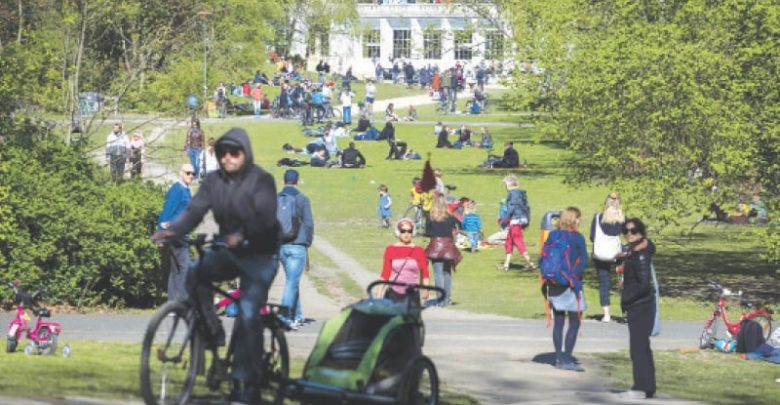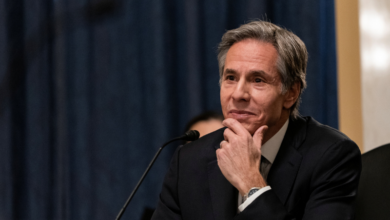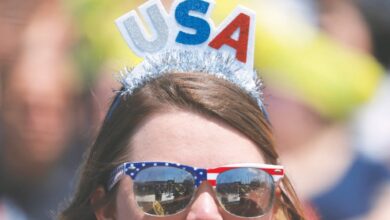Nations offer a wide mix of solutions for easing lockdowns

Pressure mounted on Sunday on governments to ease the economic pain of coronavirus lockdowns after protests from those fearing for their livelihoods. Authorities responded with a range of possible dates and solutions and a few emphatic “not yets”.
Shutdowns that began in China in late January and spread to Europe, the United States and elsewhere have disrupted economic, social, cultural and religious life across the globe and plunged the world into its most painful economic slump since the Great Depression of the 1930s. Tens of millions of workers have lost their jobs; millions more fear that they are next.
With the arc of infection different in every nation, proposals have differed for coping with the virus that has killed more than 160,000 lives over the past four months and for which there is still no vaccine. Countries such as Britain say it’s too soon to give definite lockdown easing dates.
But in Germany, which has managed to significantly slow the rate of new infections since mid-March, most small stores can reopen on Monday (today).
The head of an association representing German cities said many people would likely welcome the chance to shop in person again. “But (we) are not expecting a huge rush now,” Helmut Dedy told Germany’s dpa news agency. “The stores that are reopening will be just as accessible a week later.”
Spanish authorities said that children, after six weeks of confinement, will be allowed to leave their homes beginning on April 27. Spain imposed one of the strictest lockdowns in Europe, helping drive down the daily increase in confirmed infections from more than 20 per cent to 2pc for a country whose 20,000 virus deaths are only surpassed by the United States and Italy.
Albania plans to let its mining and oil industries reopen on Monday, along with hundreds of businesses including small retailers, food and fish factories, farming and fishing.
The International Monetary Fund expects the global economy to contract 3pc this year — a far bigger loss than that of the 2009s after the global financial crisis.
Still, many governments are resisting pressures to abruptly relax the coronavirus lockdowns. “We must not let down our guard until the last confirmed patient is recovered,” South Korea’s President Moon Jae-in said on Sunday.
British officials, who reported 888 new hospital deaths from the virus, said they’re not ready to ease lockdown measures.
UK minister Michael Gove said Britain still needs to develop its testing and contact tracing program, and beef up the National Health Service.




